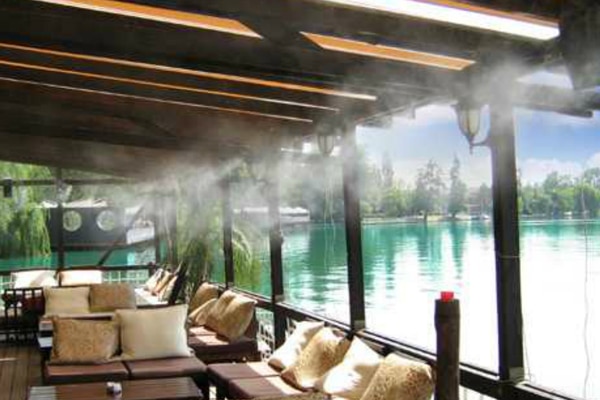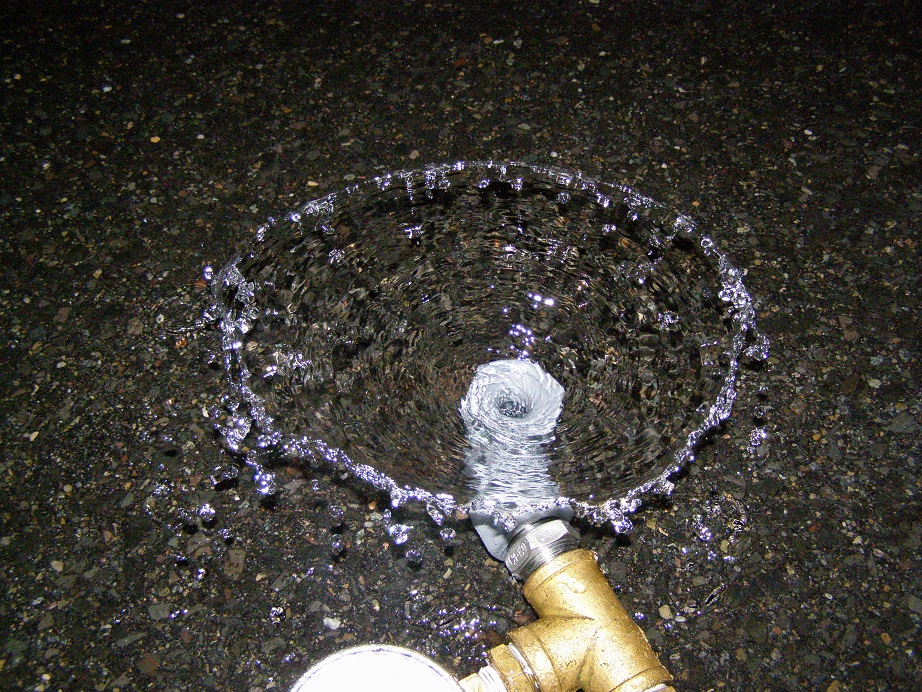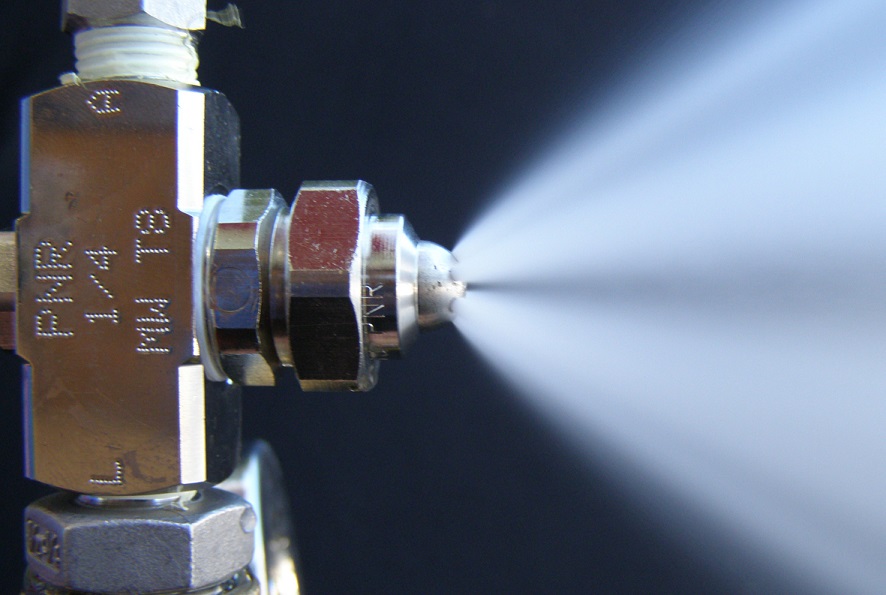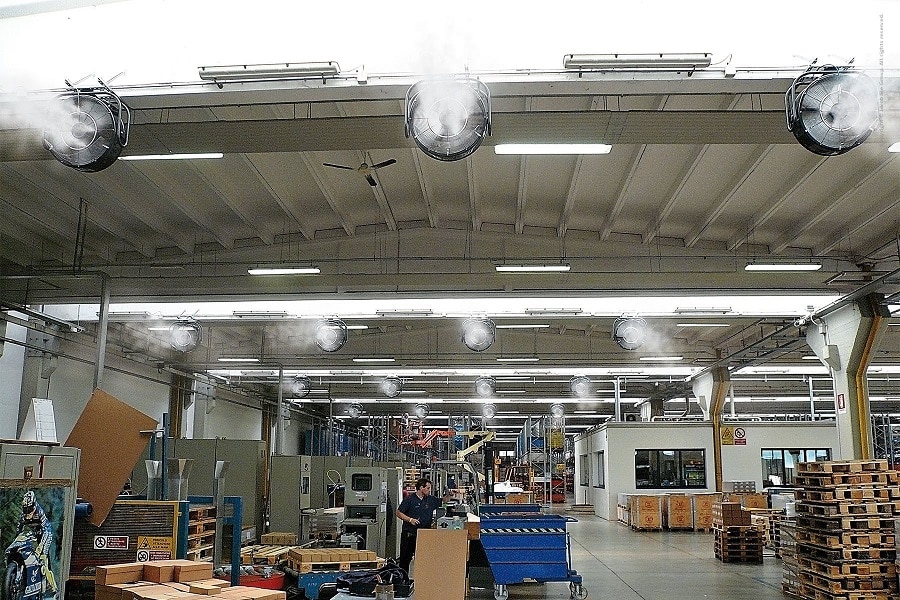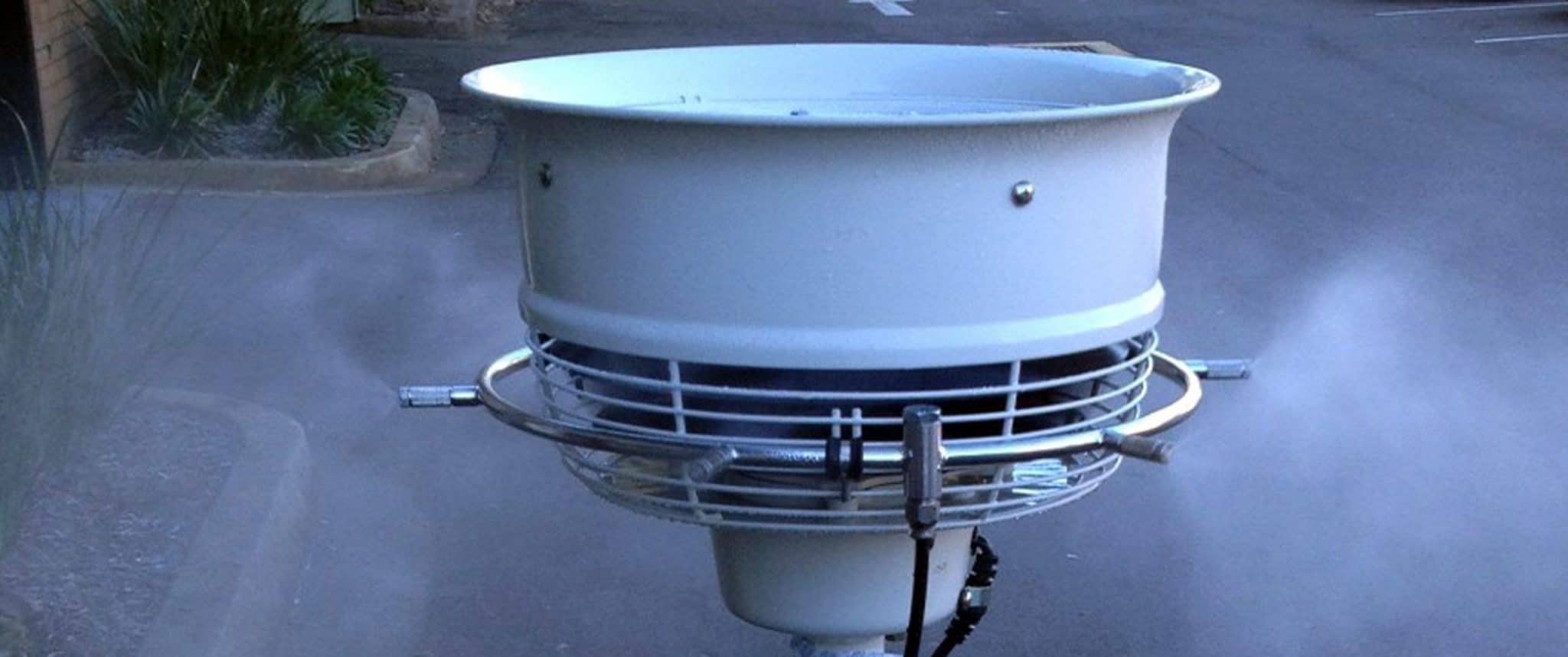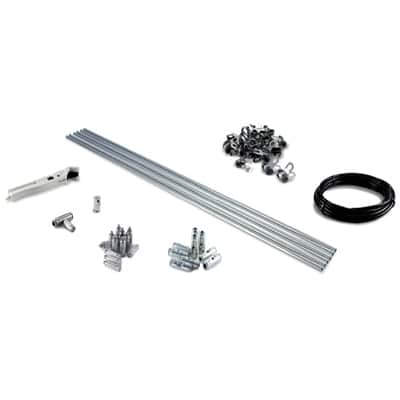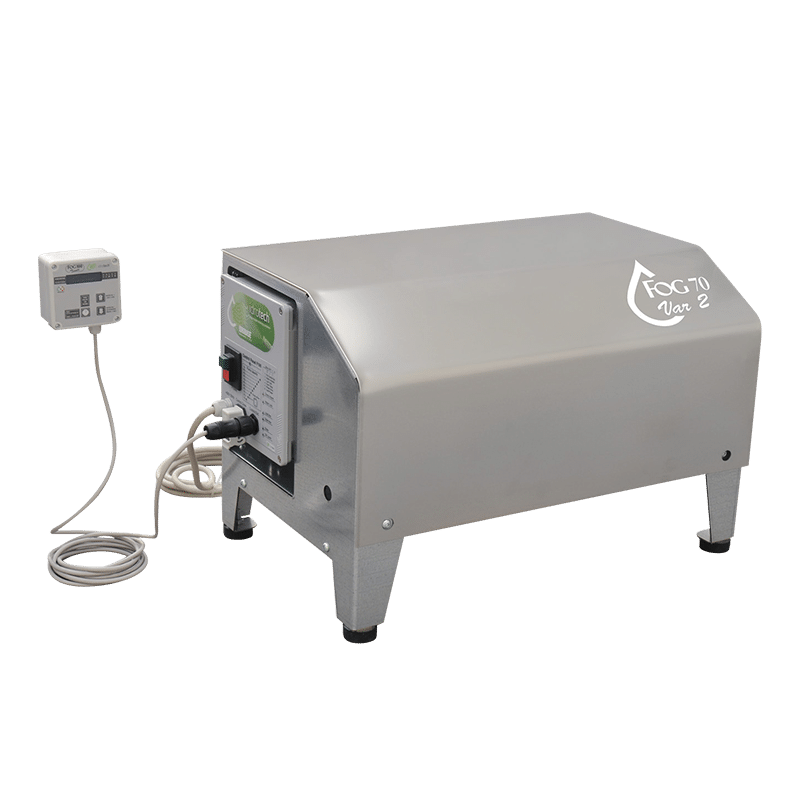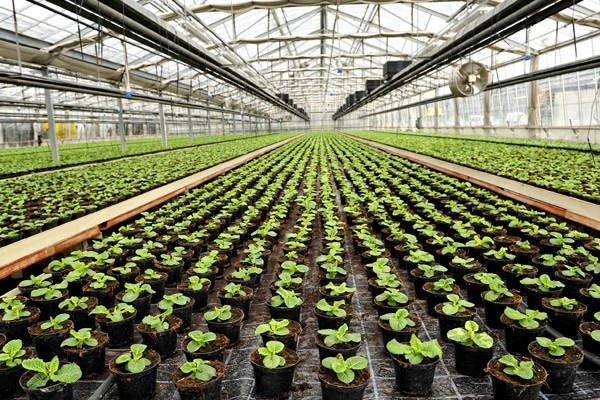Evaporative Cooling
High-pressure evaporative cooling is a cooling method that utilizes the principle of evaporative heat exchange to achieve temperature reduction in a controlled environment. This process involves the conversion of water into vapour, absorbing heat from the surrounding air and causing a drop in temperature. The use of high-pressure systems enhances the efficiency of the cooling process. This cooling method finds applications in various industries, including HVAC (Heating, Ventilation, and Air Conditioning), data centres, industrial processes, and outdoor cooling.
1. Principle of High-Pressure Evaporative Cooling:
- Evaporative Heat Exchange: Evaporative cooling relies on the natural process of water evaporation. When water is converted into vapour, it absorbs heat from the surrounding air, leading to a reduction in temperature.
- High-Pressure Systems: In high-pressure evaporative cooling, water is pressurized to create a fine mist or spray. The high pressure facilitates the formation of smaller water droplets, increasing the surface area for evaporation.
2. Components of High-Pressure Evaporative Cooling Systems:
- High-Pressure Pump: A pump pressurizes water to create the fine mist or spray required for effective cooling.
- Nozzles or Atomizers: These components disperse pressurized water into the air in the form of tiny droplets. The design of the misting nozzles plays a crucial role in achieving optimal cooling efficiency.
- Control System: A control system regulates the operation of the high-pressure pump and nozzles based on environmental conditions and cooling requirements.
- Water Supply: A reliable water supply is essential for maintaining the operation of the high-pressure evaporative cooling system.
3. Applications of High-Pressure Evaporative Cooling:
- HVAC Systems: High-pressure evaporative cooling is often integrated into HVAC systems to enhance the cooling efficiency of air conditioning units. It is particularly useful in dry climates where traditional air conditioning may be less effective.
- Data Centers: Data centres generate significant heat, and high-pressure cooling systems can be employed to manage temperature levels, ensuring optimal operating conditions for sensitive electronic equipment.
- Industrial Processes: Industries with processes that generate heat can benefit from high-pressure evaporative cooling to maintain a comfortable working environment for employees and prevent overheating of machinery.
- Outdoor Cooling: High-pressure evaporative cooling is used in outdoor settings, such as restaurants, entertainment venues, and sports events, to provide a cooling effect for patrons and spectators.
4. Advantages of High-Pressure Evaporative Cooling:
- Energy Efficiency: Compared to traditional air conditioning systems, high-pressure evaporative cooling can be more energy-efficient, as it relies on the natural process of evaporation.
- Lower Operational Costs: The use of water as a cooling medium is generally more cost-effective than refrigerants or other cooling methods, leading to lower operational costs.
- Environmental Considerations: High-pressure evaporative cooling is considered environmentally friendly, as it doesn’t rely on harmful refrigerants and can contribute to water conservation through the use of recirculated water.
- Quick Cooling Effect: The fine mist produced by high-pressure systems evaporates rapidly, providing a quick and effective cooling effect.
5. Considerations and Limitations:
- Humidity Levels: The effectiveness of high-pressure evaporative cooling is influenced by ambient humidity levels. This method is most efficient in dry or arid climates where there is room for increased evaporation.
- Maintenance: Regular maintenance is required to ensure the proper functioning of high-pressure pumps, nozzles, and control systems.
- Water Quality: The quality of the water used in the system is crucial to prevent clogging of nozzles and ensure efficient operation.
High-pressure evaporative cooling is a versatile and energy-efficient method used to cool air in various applications. Its effectiveness is particularly notable in dry climates, and it offers advantages in terms of energy efficiency, cost savings, and environmental friendliness. However, its efficiency may be limited in regions with high humidity levels.
Founded in 1982, Tecpro Australia has developed an enviable reputation for providing reliable and cost-effective technical solutions for a vast range of industrial applications. Products suitable for evaporative cooling application include:
* Spray Nozzles
* Misting Systems
* Design, Fabrication & Consulting
Our customers benefit from the following:
• Access to a broad range of quality solutions and technical advice
• Local sales support and customer service with a focus on integrity and honesty
• Over 30 years’ experience of providing expertise and solutions
• Quality European manufactured products.

